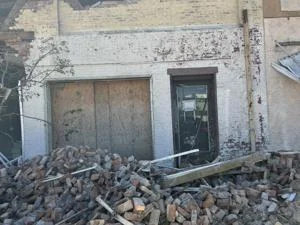(The Center Square) – Months after Hurricane Helene left a long path of destruction in Georgia, a state House of Representatives committee studying disaster mitigation recommended a statewide office of resilience.
A new study set to come out in early August supports that recommendation made late last year.
The University of Georgia Institute for Resilient Infrastructure Systems and the Pew Charitable Trusts conducted a statewide assessment of Georgia’s disaster results. They learned there is a “strong desire” for state-level leadership.
Researchers held meetings in six cities.
“A lot of the folks, the vast majority of folks we talked to, feel like the time is right and things are at a critical juncture here in Georgia where the elements seem to be in place and it’s time to bring together the scattered pieces in a cohesive way,” said Brian Bledsoe, director of the institute said in a webinar Tuesday that previews the study.
The House Disaster Mitigation and Resilience Study Committee suggested the new statewide office should be attached to the Georgia Emergency Management and Homeland Security Agency, which led disaster relief efforts after Hurricanes Helene and Milton.
“This is really to give them some more support and kind of continue those efforts long-term,” said Rep. Clint Crowe, R-Jackson, the committee’s chairman in the December meeting. “The resilience office and the chief resilience officer would be tasked with creating a state resilience plan and trying to pull all of these valued resources together.”
Bills establishing the Office of Resilience were introduced in both the state House and Senate this year, but they did not pass.
Researchers found a lack of coordination and communication across sectors, Bledsoe said, but Georgia has a very strong foundation to build a “robust resilience program” that’s integrated and coordinated across the state.
Kristiane Huber of Pew Charitable Trusts said America is experiencing more disasters. She cited a report that showed the risk of Atlantic hurricanes updated to Category 3 has doubled since 2000. The wildfire risk had doubled over the past 20 years, which was attributed to a “warming and drying climate.”
Eric Fosmire, chief of staff and general counsel for the South Carolina Office of Resilience, said it was important to keep resilience efforts apolitical as the word “climate change” is so politicized.
“The data that Kristiane showed you about disasters and the impact of those disasters being more substantial as we move forward through history, those disaster affect everyone no matter what your political party is, it doesn’t matter what your race is, it affects everybody,” Fosmire said. “And that became a real selling point for our resilience planning effort, an apolitical approach.”




